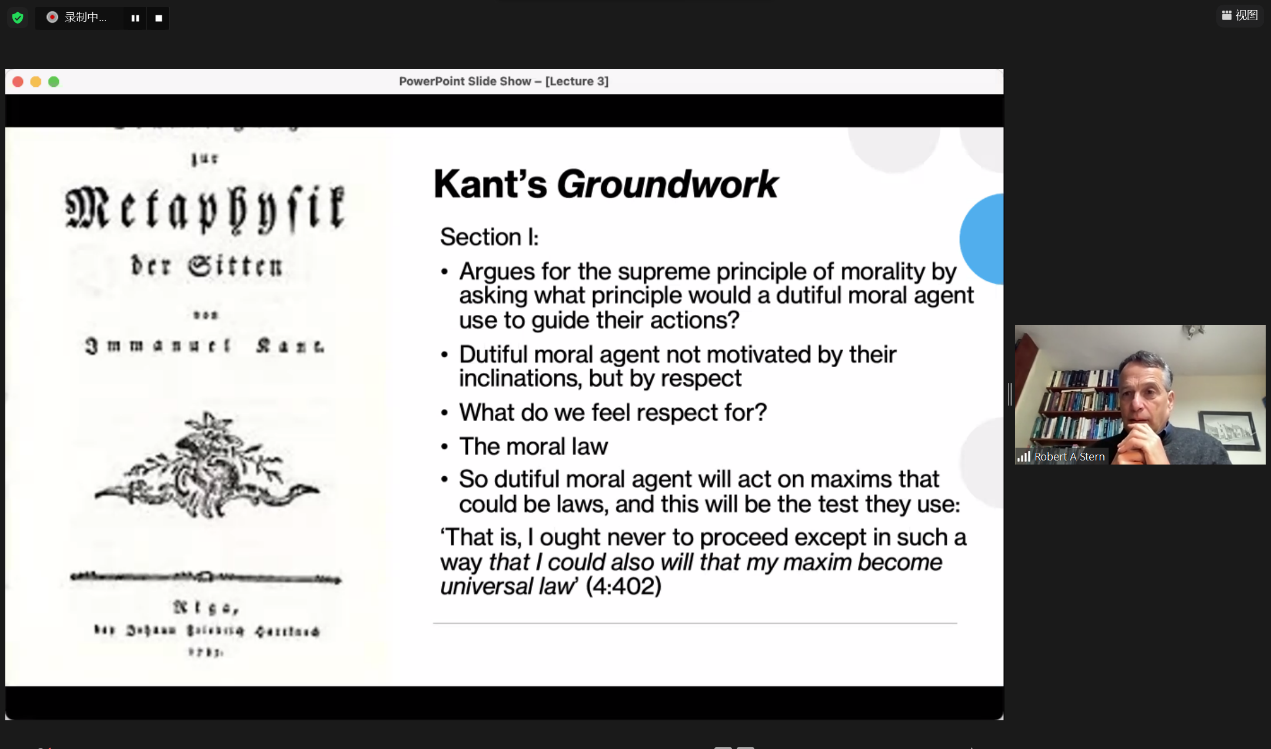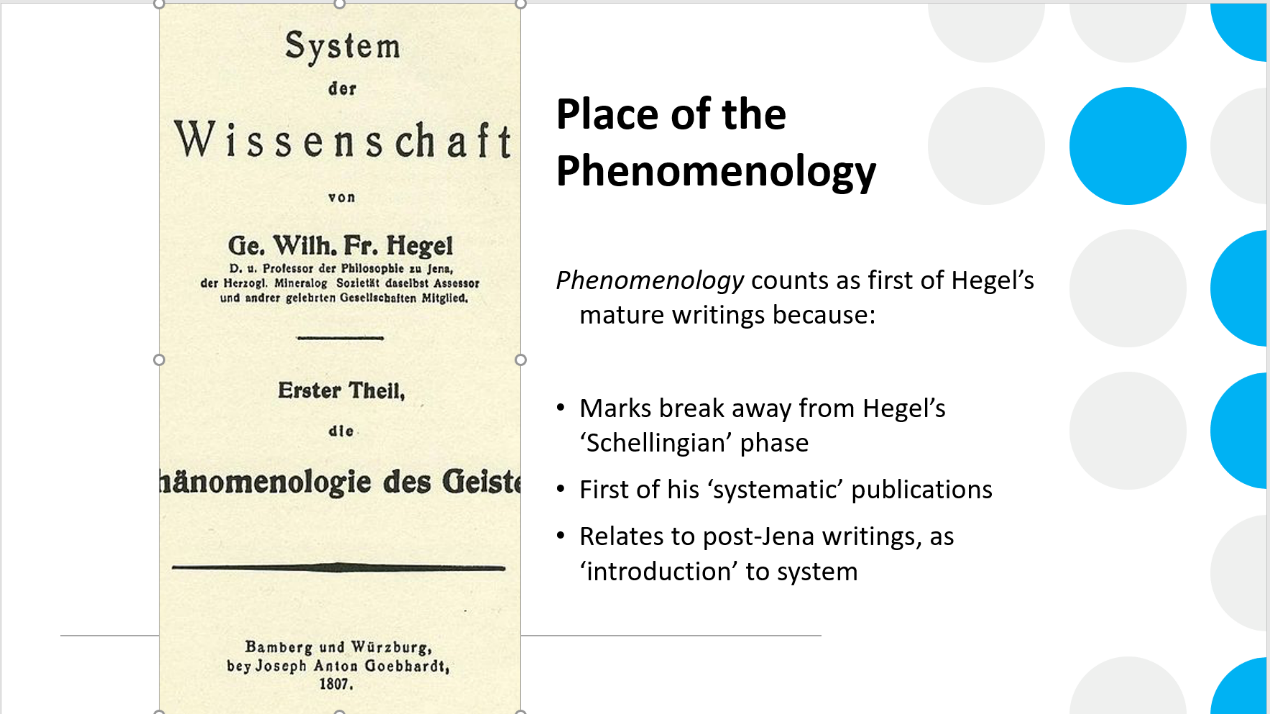From 08 October to 26 October 2021, Robert Stern, Professor of the University of Sheffield and President of the British Philosophical Society, was invited to give an overseas quality course on Hegel's Ethics and Social Thought in the Phenomenology of Spirit to our students and teachers through the Zoom online conference platform.

On 8 October, Robert introduced Hegel's aim and method in the Phenomenology with a lecture on Hegel's Ethics and Social Thought in the Phenomenology of Spirit. He argues that the Phenomenology of Spirit has three aims: 1. where does the Phenomenology of Spirit fit into the whole of Hegel's work; 2. the question of the relationship between philosophy and system; 3. for polemical purposes: against the anti-rationalists represented by Jacobi and the rationalists represented by Schelling. The approach of this book is, to begin with, the simplest position - perceptual certainty - and to proceed from within it as the simplest account of the way we are aware of the world and to move on from this base.

On 12 October, in Hegel on recognition and freedom, Robert argued that the gradual rise of consciousness (sense-certainty) to self-consciousness necessarily involves the relationship between itself and others, while the relationship between universality and individuality shapes the discussion of consciousness. For example, the relationship between dividual objects and universal properties, i.e., Hegel's famous dialectic of the master-slave relationship.
On 19 October, in the section Hegel on Kant's empty formalism, Robert discussed that after discussing the dialectic of the master-slave relation, Hegel goes on to consider reason and will consider it first in its application in modern science (observing reason), and then in its application in contemporary ethics. Finally, Hegel takes Kant's rationalist ethics as a target to turn his gaze from the empty modern ethics represented by Kant to Greek ethics.
On 22 October, Robert explored the question of the relationship between the ethical individual in the Greek perspective and the individual in the modern honest view with Hegel on Antigone; Hegel attempts to find a way in the Philosophy of Right to make sense of the moral practices we have, but without testing them in a Kantian way.
On 26 October, in his final lecture on Hegel on the French Revolution, Robert discussed Hegel's question of the relationship between Particularity and Universality under the relationship between will and reason embedded in the French Revolution.
During this series of lectures, the students and the professor actively interacted through a message board, discussing some questions about Hegel's philosophy. The professor gave satisfactory answers to the students while affirming their thinking and understanding.
